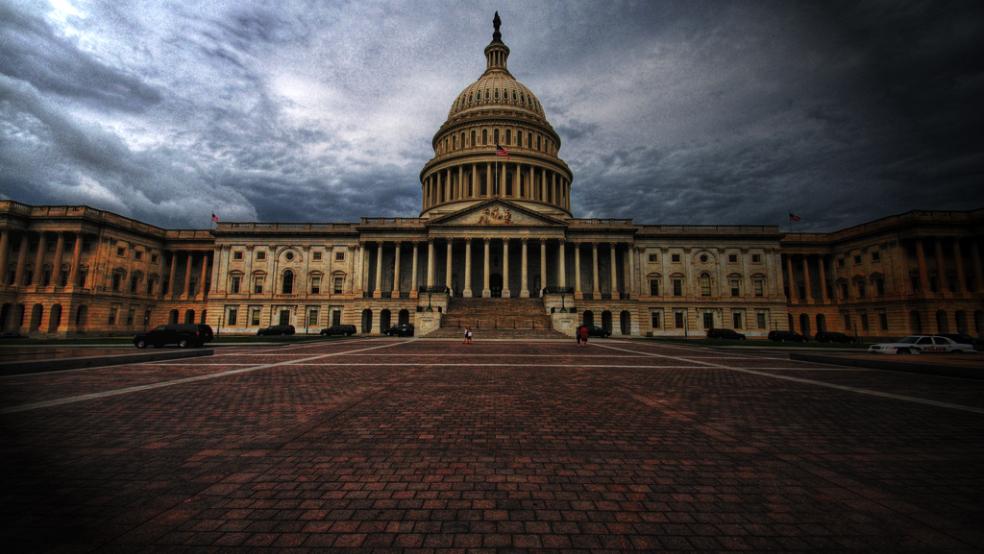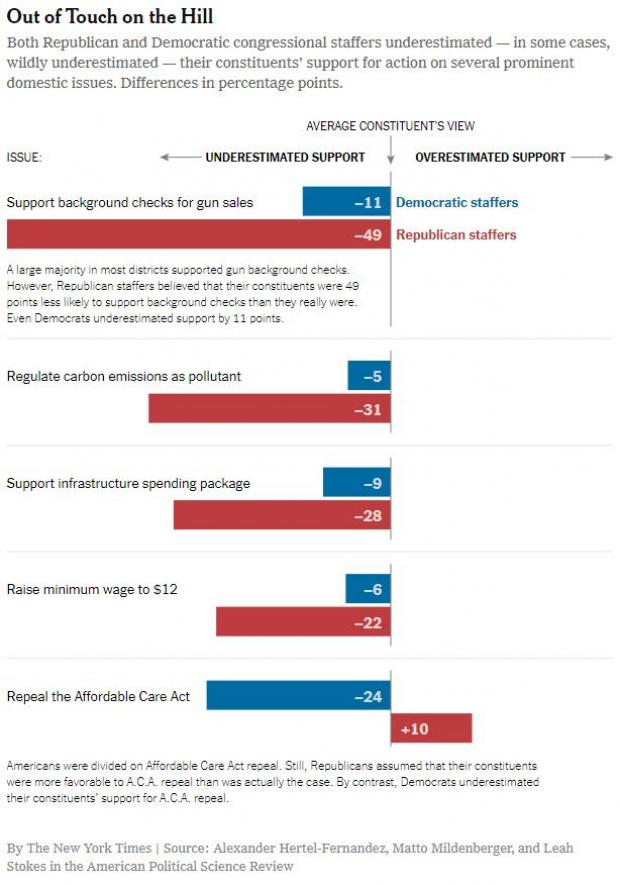With less than a week to go before the midterms, both Democrats and Republicans are campaigning hard on the message that the stakes on Election Day couldn’t be higher. That may be true, but it doesn’t mean that politicians will receive, or act on, whatever message voters send next Tuesday.
In an opinion piece at The New York Times, a trio of academics from Columbia University and The University of California, Santa Barbara, say that our elected officials and their aides have “wildly inaccurate” ideas about what policies Americans really want. “The current Republican-controlled Congress is a good example,” Alexander Hertel-Fernandez, Matto Mildenberger and Leah C. Stokes write. “Its signature accomplishment is a tax-cut bill that hardly anyone likes or asked for and that is estimated to add about $2 trillion to the national debt over the next decade.”
The authors asked senior staff members on Capitol Hill — “the people who help their bosses decide what bills to pursue and support” — about public opinion in their districts on some key issues and compared the answers they got to the results from large surveys. The result: Both Republican and Democratic lawmakers missed the mark, sometimes dramatically, though the Democrats tended to be more accurate.
Why the disconnect? The authors say that aides tend to assume the public agrees with their personal policy views. And they note that Hill staffers rely on the information they get from special interest groups, particularly those representing business and conservatives, in lieu of fielding expensive public opinion surveys. “The public contributes to the problem,” they say, “by not taking the time to express its opinions to politicians or vote.”
So what does the American public want Congress to do? In a separate piece, Gallup Editor-in-Chief Frank Newport offers some big-picture answers:
- Invest in infrastructure. “A huge percentage of the American public agrees that their tax dollars should be invested in infrastructure, even when the question wording says this would involve a trillion dollars (with a "t"),” writes Frank Newport, Gallup’s editor-in-chief. “Legislation has been discussed. Nothing has been passed. The people's wishes continue to be unfulfilled.”
- Fix the dysfunction. Americans say that the way government is run is the most important problem the country faces. “The public has good suggestions for the people they send to Washington: Compromise to find solutions,” Newport says. “This hasn't been happening. Why not? In part because our current system ends up electing ideologues to office.” In an age when partisanship pays off politically, don’t hold your breath for elected leaders to suddenly come together for more kumbaya moments.
- Do more to protect the environment. This includes investing in alternative energy and setting tougher emissions and pollution standards. “The majority also say protecting the environment should be given priority over emphasizing economic growth,” Newport notes.
- Reform immigration policy. Most Americans support stronger border security and providing a pathway to citizenship for undocumented immigrants living in the United States and adults who were brought to the country illegally as children. Most oppose building a border wall.
- Pass stricter gun laws. “Supermajorities favor requiring background checks for all gun purchases, enacting a 30-day waiting period for all gun sales and requiring all privately owned guns to be registered with the police,” Newport says.
Americans also want the government to address health care, including ensuring that all Americans are covered by health insurance, “but there is no strong consensus on how that should be done,” Newport says. And they want political leaders to ensure the viability of Social Security and Medicare.
That’s a long to-do list, and the odds of it getting done seem even longer. But as the Times op-ed suggests, whatever it is you want the next Congress to do, voting on Tuesday is only the first step in the process.



